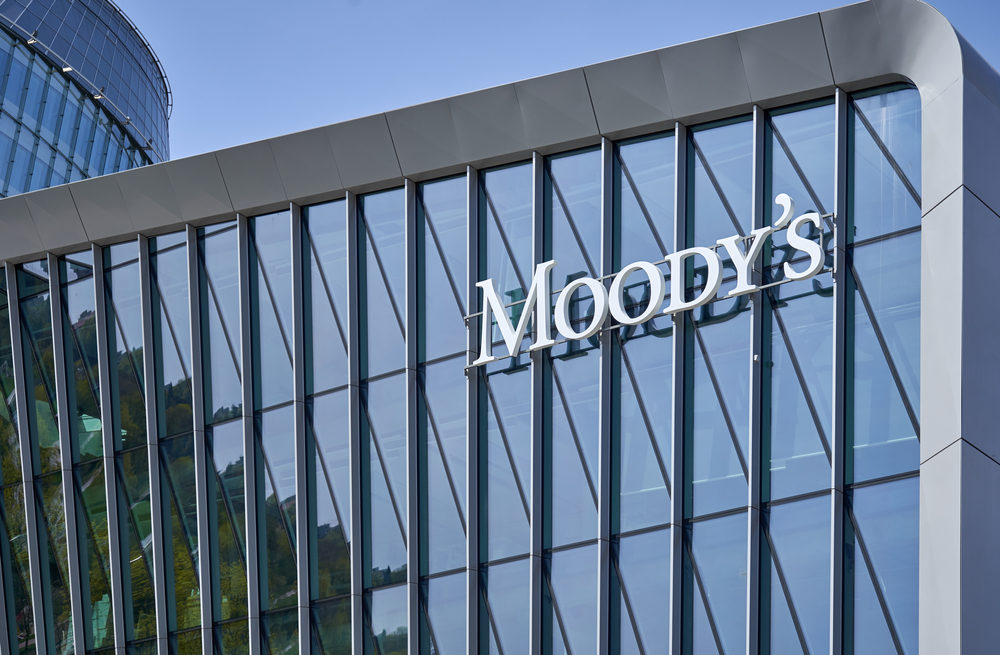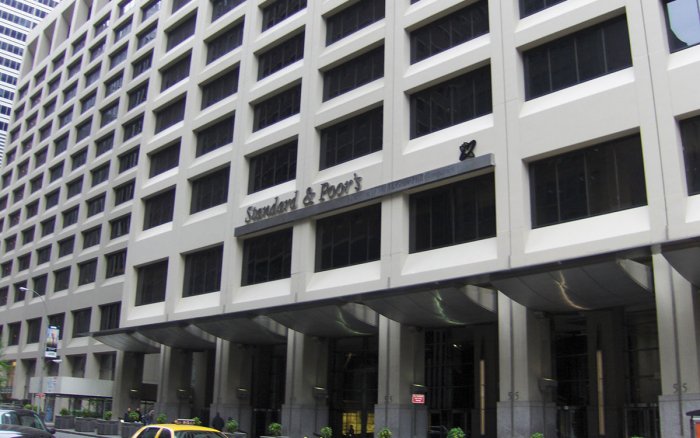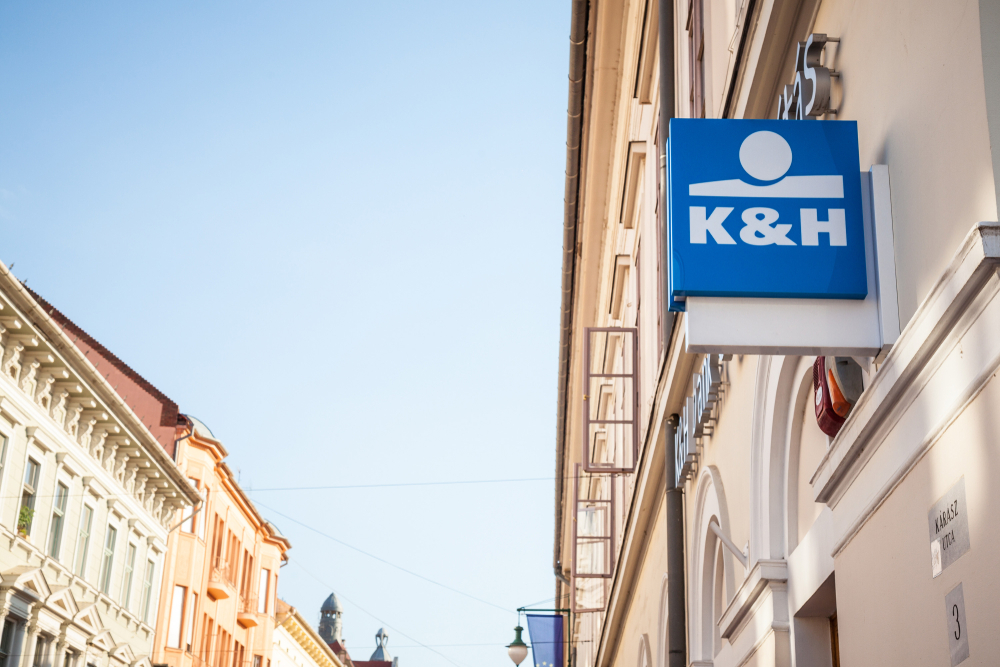Inflation Surges, but Economy Receives Acknowledgement

MTI/Prime Minister’s Press Office/Vivien Cher Benkő
Although headline inflation unexpectedly jumped to a whopping 4.7% in January, annual inflation will be close to the government’s projection of 2.8% this year, according to the country’s finance minister. For now, the central bank is still taking a wait-and-see attitude; however, March is likely to be an exciting month when it comes to monetary policy decisions.
In a photo released by the Prime Minister’s Press Office, Prime Minister Viktor Orbán (right) talks with Charles Michel, President of the European Council (second left) and V4 Prime Ministers, at an extraordinary EU summit in Brussels on February 21. Photo by MTI/Prime Minister’s Press Office/Vivien Cher Benkő.
After headline inflation in Hungary reached 4.7% in January, far exceeding the mid-term target of the central bank, and the forint hit all-time lows against the euro earlier this month, the National Bank of Hungary (MNB) has been forced to change the tune of its communication on rate-setting decisions.
MNB Deputy Governor Márton Nagy finally pledged that the bank would use “all available tools” if needed to combat high inflation. However, at its latest rate-setting meeting on February 25, the Monetary Council left the base rate on hold at 0.9%, and the O/N deposit rate at -0.05%.
In a statement issued after the meeting, the council said it would continue to decide on adjustments to monetary policy on a quarterly basis, adding it would carry out a “comprehensive assessment of macroeconomic developments” in the next Inflation Report, due to be published when the rate-setters meet in March.
While the central bank is confident that inflation rate will overall be close to its 3% mid-term target this year, and will return to below 4% by the end of this quarter, it is worth noting that the January figure was the highest among European Union member states, according to data from the block’s statistical agency, Eurostat.
The euro area annual inflation rate was 1.4% in January 2020, up from 1.3% a month before. In January 2019, the rate was also 1.4%. For the EU 28, annual inflation was 1.7% in January 2020, up from 1.6% in December. The rate stood at 1.5% in January 2019.
As for Hungary, it has been mostly fuel, food, alcoholic beverages and tobacco product prices that have been responsible for the acceleration in the CPI.
Pork Prices Soar
As detailed KSH data shows, food prices were up by 6.9%, within which pork prices rocketed by 27.6%, the price of other meat preparations was up 17.4%, seasonal food items (potatoes, fresh vegetables, and fruits) rose by 10.8%, sugar prices by 8.4% and the price of meals at restaurants and canteens was 7.2% higher.
The price of alcoholic beverages and tobacco rose by 7.4% on average, within which tobacco prices grew by 11.3%. Consumers paid 3.6% more for services, with rent increasing by 10.3%. Motor fuels became 13.5% more expensive.
Compared to December 2019, consumer prices rose by 0.9% on average. Food prices were up by 2% on average, within which the price of seasonal food items jumped by 7.9%, both pork and pasta products prices rose by 2.5%, the price of non-alcoholic beverages was up 2.3% and of other meat preparations were 1.5% higher.
Consumers paid 1.2% more for alcoholic beverages and tobacco, within which tobacco (due to an increase in the excise duty imposed on it) became 1.2% more expensive. Some 0.5% more was paid for services, within which postal services were 8.7% more and games of chance 7% more. The price of motor fuels rose by 2.8%. Clothing and footwear cost 2.2% less for consumers due to end-of-season sales.
Viral Infection
Fourth quarter GDP data also came out in the past weeks, and showed a deceleration from the previous quarter. The economy expanded by 4.5% year-on-year in the Q4 of 2019, the first reading of data by the KSH shows, slowing from 5% in Q3. GDP growth was exceptionally strong in the first quarter, reaching 5.3% before slowing to 4.9% in Q2. Full-year GDP growth reached 4.9% in 2019. In 2018 full-year growth was 5.1%, up from 4.3% in 2017.
In spite of the deceleration, it came as a positive surprise for analysts, who nonetheless expect the moderate slowdown to continue this year. Now the government has also cut its earlier prediction of 4% to 3.5%, which is the slowest pace in four years. It is mainly due to the impact of the coronavirus and Brexit.
“We do not need to make changes to this year’s budget,” Minister of Finance Mihály Varga said in a recent interview, adding that trends in the global economy were so volatile that it is still possible that the original 4% growth projection could be achieved.
On a positive note, the past weeks have also seen Valentine’s Day surprises as well: there were two credit rating reviews scheduled for the Hungarian economy; one was carried out by Fitch Ratings on that affirmed Hungary’s “BBB” sovereign rating, two notches over the investment grade threshold, with a “stable” outlook. The other review, also issued on February 14, saw S&P Global Ratings change its outlook on Hungary’s “BBB” sovereign rating to “positive” from “stable”.
“The outlook revision reflects Hungary’s strong economic growth outlook with macroeconomic imbalances remaining contained,” S&P said, noting that the country’s economy is still growing at one of the fastest clips in the European Union.
Numbers to Watch in the Coming Weeks
Fourth quarter investment figures will be published by KSH today (Friday, February 28). On March 4, we will find out how domestic spending was in January. On March 6, KSH will release data on the January industrial performance. A few days later, on March 10, we will learn whether the rise in consumer prices was only temporary.
SUPPORT THE BUDAPEST BUSINESS JOURNAL
Producing journalism that is worthy of the name is a costly business. For 27 years, the publishers, editors and reporters of the Budapest Business Journal have striven to bring you business news that works, information that you can trust, that is factual, accurate and presented without fear or favor.
Newspaper organizations across the globe have struggled to find a business model that allows them to continue to excel, without compromising their ability to perform. Most recently, some have experimented with the idea of involving their most important stakeholders, their readers.
We would like to offer that same opportunity to our readers. We would like to invite you to help us deliver the quality business journalism you require. Hit our Support the BBJ button and you can choose the how much and how often you send us your contributions.









